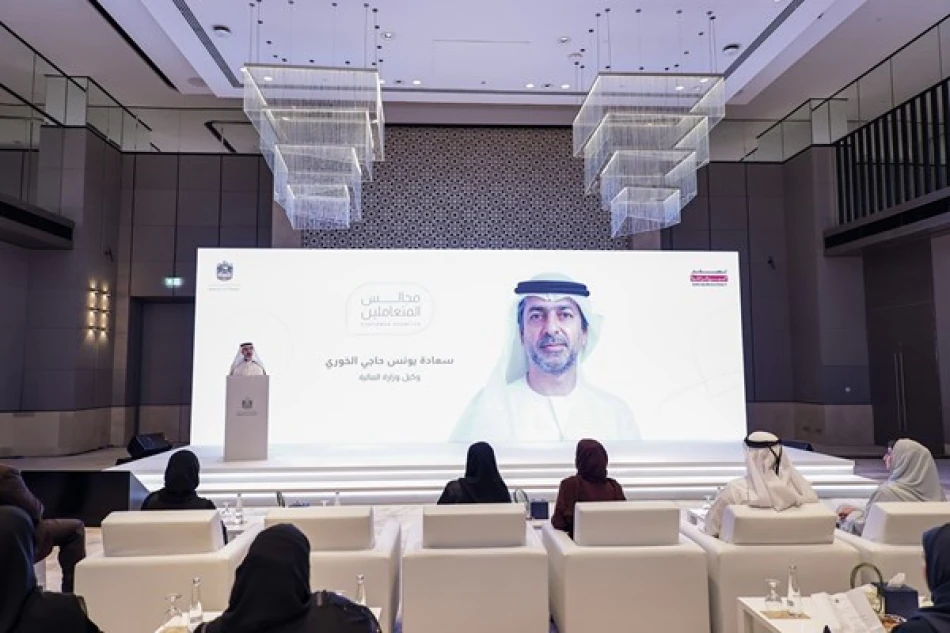
Finance Ministry Hosts Second Client Council to Streamline Bureaucracy
UAE Finance Ministry Accelerates Bureaucracy Elimination Drive to Boost Business Competitiveness
The UAE Ministry of Finance has convened its second Stakeholders Council as part of an ambitious "Zero Bureaucracy" program, marking a strategic shift from identifying administrative bottlenecks to co-designing practical solutions with private sector partners. This collaborative approach signals the Emirates' determination to maintain its edge as a global business hub while streamlining government operations across ten critical financial domains.
From Problem Identification to Solution Design
The second council session, held in Dubai, represents a maturation of the UAE's bureaucracy elimination efforts. Unlike the inaugural meeting in July 2025, which focused on cataloging challenges, this gathering emphasized collaborative solution design between government officials and business stakeholders.
Younes Haji Al Khoori, Undersecretary of the Ministry of Finance, positioned the initiative as more than administrative reform. "This program is not merely an administrative initiative, but an institutional transformation aimed at simplifying procedures, facilitating transactions, and improving quality of life," he stated during the opening session.
Ten Strategic Focus Areas
The council addressed specific operational domains that directly impact business efficiency:
Budget preparation processes, government fee structures, federal financial systems, asset management, procurement operations, final accounts, financial consulting services, tax information exchange, entity classification for tax purposes, and government financial statistics reporting. Additionally, discussions covered the roadmap for federal financial policies and enhancing digital procurement platform efficiency.
Strategic Positioning in Global Competition
This bureaucracy elimination drive places the UAE in direct competition with other business-friendly jurisdictions like Singapore and Hong Kong, which have long prioritized streamlined government processes. The timing is particularly significant as global businesses reassess their regional headquarters following geopolitical shifts and post-pandemic operational changes.
The UAE's approach differs from typical government efficiency programs by embedding artificial intelligence and advanced technology into the reform process, potentially leapfrogging traditional administrative modernization efforts seen in other markets.
Business Environment Implications
For international investors and local businesses, these reforms could translate into measurable operational advantages. Simplified procurement processes may reduce project timelines, while streamlined tax procedures could lower compliance costs. The emphasis on digital transformation suggests the UAE is building infrastructure for future business models rather than merely updating existing systems.
Vision 2031 Integration
The Zero Bureaucracy program, launched by the UAE government in 2023, serves as a cornerstone of the "We the UAE 2031" vision. The initiative targets 100% elimination of digital bureaucracy, including administrative electronic complexities, excessive approvals, and ineffective AI adoption.
This comprehensive approach extends beyond typical government efficiency measures. By focusing on human-centered, high-efficiency business models, the UAE positions itself to compete not just regionally but globally for talent and investment flows.
Measurable Outcomes Expected
The program's success metrics include reduced processing times, lower administrative costs, and improved business environment rankings. Given the UAE's track record in government innovation—from digital-first visa processes to AI-powered city services—these bureaucracy reforms could set new benchmarks for government efficiency in emerging markets.
Market Implications and Future Outlook
The collaborative methodology employed by the Finance Ministry suggests a sophisticated understanding of modern public-private partnerships. By involving stakeholders in solution design rather than imposing top-down reforms, the UAE demonstrates institutional maturity that could attract businesses seeking predictable, responsive regulatory environments.
For regional competitors, this initiative raises the bar for government efficiency standards. As the UAE continues refining its administrative processes through stakeholder feedback and technology integration, other Gulf states may need to accelerate their own modernization efforts to maintain competitive positioning for foreign investment and business establishment.
Most Viewed News

 Layla Al Mansoori
Layla Al Mansoori






